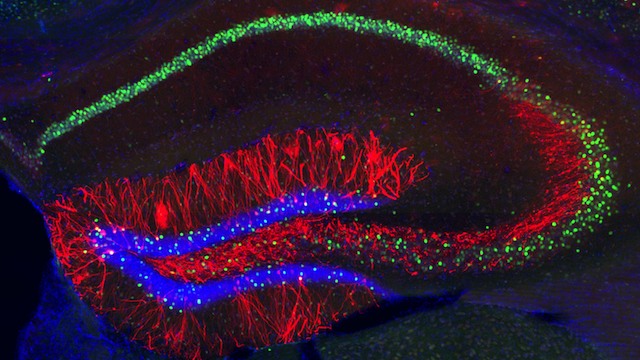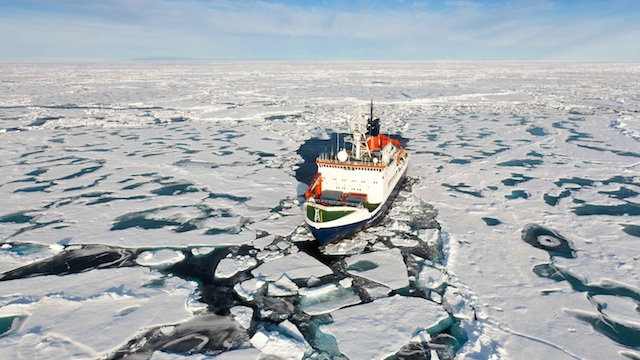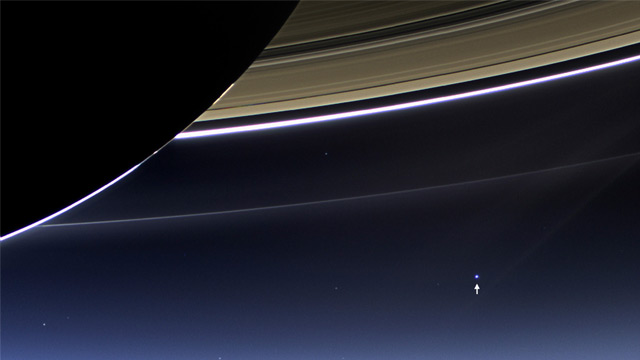SUMMARY
This is AI generated summarization, which may have errors. For context, always refer to the full article.
Science wRap is a weekly roundup of some of the top stories from the world of science, technology, and environment.
MANILA, Philippines – “False memories,” dolphin whistles, a photobomb from deep space, and light stopped in its tracks – these are some of the top science stories in the week of July 22-27.

‘False memories’ in mice
Mice have been successfully implanted with false memories by scientists in the United States, and this could have potential impact in the study of human memory. Scientists at the Massachusetts Institute of Technology (MIT) said the study involved recognizing brain cells that are physically and chemically changed during memory formation, and the researchers said they were able to pinpoint cells for a specific memory in mice and “program” it. The study was also able to pinpoint the location of these “memory traces,” called engrams, in the brain.
They said the study gives a peek on how it could work in humans. The study could be useful in dealing with post-traumatic stress and in inaccurate eyewitness testimony in courts, the scientists added.
- Neuroscientists plant false memories in the brain (MIT News)
- Scientists produce false memories in mice (Inside Science)
- ‘False memories’ take life in the lab (AFP/Rappler)
Stopping light for 60 seconds
Light was stopped and held in place for 60 seconds by scientists in Germany, according to a paper published in the journal Physical Review Letters. Researchers from the University of Darmstadt said they were able to stop and store laser light fired into a cooled-down laser using the principle of quantum superposition. “Stopping light and holding it in place, then releasing it is an important step towards the creation of a quantum repeater, a necessary component of a future quantum computer,” according to Phys.org.
- Stopped Light and Image Storage by Electromagnetically Induced Transparency up to the Regime of One Minute (Physical Review Letters)
- Researchers stop and store light for 60 seconds (Phys.org)
- Light completely stopped for a record-breaking minute (New Scientist)

Usain Bolt’s 100m sprint, analyzed
How fast does athletics superstar Usain Bolt really run? According to a study published in the European Journal of Physics, Bolt runs really, really fast. Based on mathematical models, he would still be the world record holder for the 100-meter dash, with or without the effect of wind, based on his race data from the 2009 World Championships of Athletics. The researchers also found out that based on race data, his acceleration from the starting block is very close to g, or the acceleration due to Earth’s gravity (g= 9.8 m/s2). He also produced an astonishing 2,619.5 watts less than a second into his record-breaking sprint – power enough to operate a dishwasher, notes Medical Daily.
- On the performance of Usain Bolt in the 100 m sprint (European Journal of Physics)
- The Physics of Usain Bolt (Science magazine)
- Secret of Usain Bolt’s speed unveiled (BBC News)
- The Astonishing Physics Behind Usain Bolt’s World Record Sprint (Medical Daily)
Coffee drinking lowers suicide risk
Coffee can make you nervous, but a study released by the Harvard School of Public Health (HSPH) said it also lowers the risk of suicide. The study said those who took 2-4 cups of caffeinated coffee a day had a lower suicide risk, compared to those who drank decaffeinated, or those who drank little to no coffee. However, the researchers said they have yet to pinpoint what chemical is causing this effect, although they said caffeine could be it.
- Coffee, caffeine, and risk of completed suicide: Results from three prospective cohorts of American adults (World Journal of Biological Psychiatry)
- Coffee drinking tied to lower risk of suicide (Harvard Gazette)
- Harvard study: Caffeine may lower risk of suicide (Rappler)

Arctic methane ‘time bomb’: True or false?
News about the potential devastating effects of the release of billions of tons of methane locked in the Arctic ice has sparked a debate in the scientific community about its accuracy.
In a commentary published in Nature, a group of scientists said computer simulation of the release of 50 billion tons of methane from the East Siberian Sea over a decade could “bring forward the date at which the global mean temperature rise exceeds two degrees Celsius (3.6 degrees Fahrenheit) by between 15 and 35 years.” This release of the greenhouse gas due to the rapidly melting ice could also bring billions of dollars in economic damage, particularly in the world’s poorer economies.
However, other experts have questioned the accuracy of the claim. Some scientists said the size of the methane reservoir (stored in the form of methane hydrates) is uncertain, and that the release of the gas in such manner is unlikely.
- Vast costs of Arctic change (pdf, Nature)
- Arctic methane breach an ‘economic time bomb’ (AFP/Rappler)
- Ice-free Arctic in two years heralds methane catastrophe – scientist (Earth Insight, The Guardian)
- Methane mischief: misleading commentary published in Nature (Capital Weather Gang blog, The Washington Post)
- A response to Methane Mischief: Misleading Commentary Published In Nature (University of Cambridge)
- Arctic methane claims questioned (LiveScience)
- Arctic methane credibility bomb (Dot Earth blog, The New York Times)
National Science & Technology Week
Innovation, Filipino-style, was front and center during the week-long National Science and Technology Week (NSTW), an annual exposition showcasing the latest in science and tech in the country. This year, the NSTW is anchored on the Department of Science and Technology’s Smarter Philippines initiative. It will focus on homegrown technology for disaster risk reduction, health, agriculture, transportation, government services, and information and communications technology, with the end goal of providing reliable and efficient services to the Filipino public.
- National Science & Technology Week: Expo Science 2013 (DOST)
- MOSES tablet leads ‘smart’ tech at national science week (Rappler)
- #TalkThursday with DOST Sec Mario Montejo / Science, tech ‘key to PH competitiveness’ (Rappler)
Other notable stories
- Saving oranges via genetic modification When a disease strikes oranges in Florida, growers turn to DNA modification to save their crops. But will the public still consume the genetically-modified fruits? (More at The New York Times)
- Can’t sleep? Blame the Moon The phases of our Moon can affect our sleeping patterns, a new study found out. (More at National Geographic News)
- Dolphin name-calling A study finds dolphins use unique signature whistles to identify themselves, and answer back when called. Researchers said dolphins are the only non-human mammals to have “names” for each other. (More at Rappler)
We end this week’s Science wRap with this image of our home planet, as viewed from the Cassini space probe as it passed by Saturn earlier this week.

– Rappler.com
Think we missed out on any interesting science, technology, and environment stories from the past week? Leave a comment below.
Add a comment
How does this make you feel?
There are no comments yet. Add your comment to start the conversation.